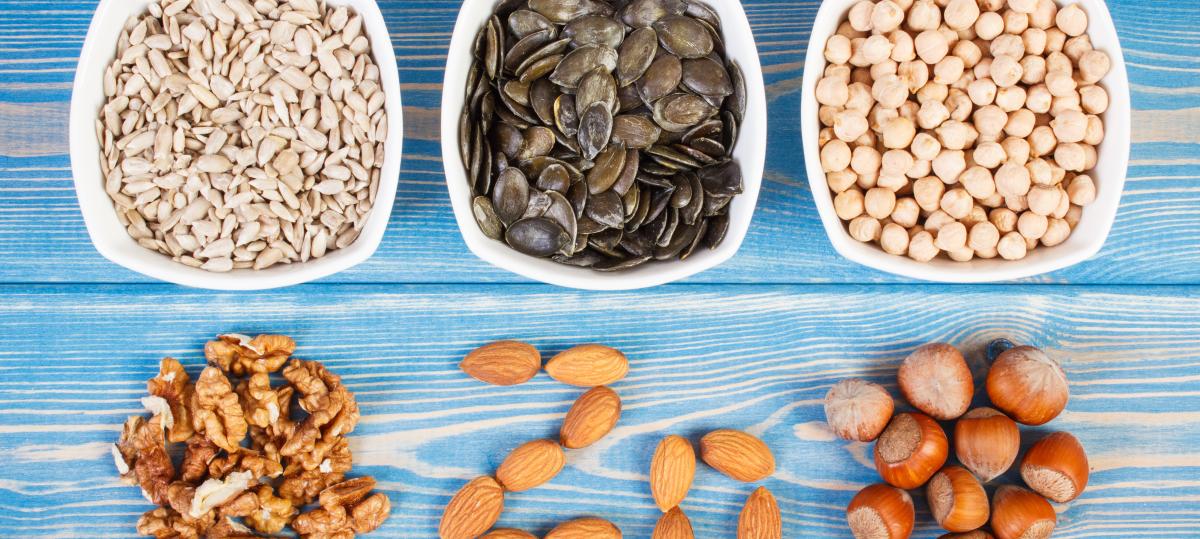What is zinc in the body for?

Zinc plays a much larger role in the bodyas many, and without enough zinc, a lot gets out of balance quickly. But what is zinc in the body for and how do you recognize a deficiency? We deliver the most important answers below.
What is zinc and why is it important for the body?
Zinc is a vital trace element that the body cannot produce itself, like that German Nutrition Society (DGE) explained on your website. It must therefore be recorded regularly through food, since it cannot be saved in the organism. As a so -called essential trace element, zinc is involved in a variety of biological processes – from cell division to immune defense.
According to medicine publications such as MSD manuals and Havard Health publishing is part of over 100 enzymes that are needed in the formation of DNA and RNA, but also for metabolism, wound healing and growth. In addition, it is essential for numerous other processes in the body that will be dealt with below.
Zinc is distributed throughout the body and comes especially in bones, teeth, skin, HairMuscles, the liver, white blood cells and the testicles.
What is zinc in the body for?
Zinc is involved in a variety of essential functions in the human body. It acts as a so -called « cofactor » for a large number of enzymes and is therefore indispensable for numerous metabolic processes, the immune system, cell division and tissue repair. The DGE, gesund-bund.de and MSD Manuals Lists the following functions that fulfill zinc in the human body:
- Li): Relative List-None (&> Li): PL- (1.2EM) (&> Li): Marker: Text- (0) (&> Li): Relative (&> Li): Before: Absolute (&> Li): Before: W-3 (&> Li): Before: H-3 (&> Li): Before: BG fire (&> LI): Before: LEFT-0 (&> Li): Before: Top- (8px) (&> Li): Before: Rounded-Full My-5 « >
- Immune defense: Zinc contributes significantly to the function of the immune system by supporting the formation and activity of immune cells. A balanced zinc status strengthens the body’s defense against infections. A deficiency, on the other hand, can weaken the immune function and increase susceptibility to infect.
- Wound healing and skin health: Zinc is indispensable for wound healing and healthy skin. It plays a central role in cell division and regeneration, which is why it can be supportive in injuries and skin diseases such as eczema.
- Cell growth and development: Especially in growth phases – such as childhood, pregnancy and breastfeeding – zinc is required for cell growth, length growth and the normal development of the fetus.
- Fertility and hormone production: Zinc is involved in the production of sex hormones such as testosterone and supports sperm formation. A deficiency can have a negative impact on fertility.
- Sensory perception: The mineral is necessary to maintain the sense of taste and smell. A zinc deficiency can lead to taste disorders or loss of odors.
- Metabolism and hormone balance: Zinc influences fat and sugar metabolism as well as the function of thyroid and insulin hormones. It contributes to the regulation of blood sugar levels.
- Antioxidant protection: Zinc acts as a radical scavenger in antioxidant enzyme systems and helps the body to manage oxidative stress. This protects cells from early aging and damage.
So zinc does not act selectively in the body, but is multifunctional: it is involved in all essential biological processes that make the body healthy, resistant and able to regenerate.
What happens if there is a zinc deficiency?
A Zinc deficiency can have a negative impact on many body functions, since zinc is involved in over 100 enzymatic processes. Typical symptoms are a weakened immune system, hair loss, disturbed taste and smell, skin inflammation, diarrhea and poor wound healing, such as gesund-bunde.de and Havard Health publishing explain. Loss of appetite, fatigue and growth delays in children can also occur.
Risk groups include people with inflammatory bowel diseases, alcohol-dependent, seniors and people with a high phytata supply-for example due to a lot of wholemeal grain, legumes-or purely herbal diet, the insurer writes AOK.
A deficiency is often suspected by typical symptoms and treated by the administration of zinc preparations. Laboratory tests alone are not always meaningful, since zinc values in the blood are in the normal range despite deficiency or can be falsified by infections MDS Manuals and gesund-bund.de.
How can you cover the zinc requirement?
Due to the effects of a lack of zinc on the body, it is important to always be well supplied with the trace element. Zinc is in many foods – especially in animal products such as meat, fish, eggs, milk and cheese. These not only provide larger amounts of zinc, but the body can also take the zinc out of it particularly well, explains the DGE.
Vegetable foods such as legumes, whole grains, nuts, kernels and oatmeal also contain zinc. However, phyties contained therein inhibit the intake in the intestine. The AOK therefore advises to increase availability, soak legumes and grain, to germinate or to process them through sourdough fermentation. A certain daily time for zinc intake However, there is no Zinc and magnesium have no distance be adhered to.
A balanced mixed food usually covers the daily requirement without any problems. According to the DGE, adult women need 7–10 mg zinc per day, men 11–16 mg – depending on how much phytat contains in the diet. Higher values apply to pregnant women and breastfeeding.
Particularly Zinkreichen food (per 100 g) are according to Havard Health Publishing and DGE:
- Li): Relative List-None (&> Li): PL- (1.2EM) (&> Li): Marker: Text- (0) (&> Li): Relative (&> Li): Before: Absolute (&> Li): Before: W-3 (&> Li): Before: H-3 (&> Li): Before: BG fire (&> LI): Before: LEFT-0 (&> Li): Before: Top- (8px) (&> Li): Before: Rounded-Full My-5 « >
- Oysters (up to 32 mg)
- Beef (3.5–3.8 mg)
- Cheese (e.g. mountain cheese: approx. 3 mg)
- Pumpkin seeds (approx. 2.2 mg)
- Oatmeal (approx. 2.2 mg)
If you eat a balanced diet and regularly integrates zinvian food into your menu, you generally do not have to take zinc preparations. Only if the defect or in special phases of life can be Supplement with zinc tablets sensible be – ideally for medical consultation. Because one Overdose of zinc is rare, but can result in violent symptoms such as nausea and vomiting.
By the way: An important role can Zinc also for people with osteoarthritis play. Because if your joints are inflamed, the need can be increased.








